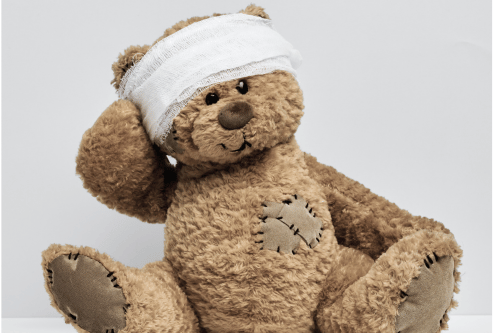Does OCD Get Worse with Age?
Obsessive-Compulsive Disorder (OCD) is a chronic disorder that can affect individuals differently across their lifespan. Many people wonder if OCD symptoms worsen with age, especially when triggered by stress, hormonal changes, or co-occurring mental health conditions. Understanding the factors that impact symptom severity can help support long-term recovery and quality of life.
Tennessee Behavioral Health
Understanding OCD
Definition and Symptoms of OCD
Obsessive-Compulsive Disorder is a mental illness marked by uncontrollable obsessions and repetitive behaviors. These obsessions can include fears of contamination, germs, or harm. Compulsions are ritualistic behaviors like excessive cleaning or checking.
Common Causes and Triggers
Environmental factors, childhood trauma, and genetic predisposition often play a role. Stressful events and major life changes can act as key factors that trigger OCD symptoms over time. Hormonal shifts and the presence of comorbid conditions may further influence symptom intensity.
Factors That Can Influence OCD Progression
Impact of Stress on OCD
Stress is a major factor in making symptoms worse. High-stress situations can intensify the cycle of obsessions and compulsions. Long-term stress also raises the risk of relapse and return of symptoms.
Role of Hormonal Changes
Hormonal shifts, such as changes in progesterone levels or menstrual cycles, may impact the severity of symptoms. Female patients may notice changes during pregnancy, postpartum, or menopause. Hormone levels can be a key factor in OCD development in patients.
Influence of Major Life Transitions
Major life events, like marriage, parenthood, or job loss, can lead to heightened anxiety and intrusive thoughts. These transitions may cause untreated symptoms to surface. Life circumstances can shape how compulsive behavior shows up in daily life.
Contribution of Childhood Traumas
Traumas experienced in childhood, especially abuse or neglect, can affect the brain’s development. These early experiences may influence the progression of OCD symptoms with age. The duration of illness often correlates with trauma exposure.
Effect of Sleep Disturbances
Poor sleep quality can worsen mental health symptoms, including OCD. Lack of rest can increase emotional reactivity and decrease impulse control. Addressing sleep issues is a core part of managing this chronic condition.
Comorbidities and OCD
Interaction with Anxiety Disorders
OCD often co-occurs with other mental health disorders, especially anxiety disorders like generalized anxiety disorder, social anxiety disorder, and panic disorder. These comorbid conditions can increase the symptom severity of OCD. They can also make response prevention therapy more difficult.
Role of Depression
The depressive disorder frequently overlaps with OCD. Feelings of hopelessness can reduce motivation to engage in treatment options. Depression may also exacerbate compulsive behaviors and obsessions.
Other Common Co-Occurring Disorders
Attention Deficit Hyperactivity Disorder (ADHD), bipolar disorder, anorexia nervosa, and borderline personality disorder are also found in OCD patients. Each co-occurring mental health condition adds to the complexity of treatment plans. Mental health professionals must address all diagnoses for effective treatments.
The Role of Treatment in Managing OCD
Tennessee Behavioral Health
Importance of Early Intervention
Untreated Obsessive-Compulsive Disorder tends to worsen over time. Early detection and proper treatment help reduce the risk of chronic disorder development. Seeking support from a healthcare professional early is crucial.
Cognitive-behavioral therapy (CBT)
CBT is a widely used evidence-based treatment for OCD. A specific form known as Exposure and Response Prevention Therapy is highly effective. It helps patients face fears without resorting to compulsive behavior.
Use of Medications
Medication management, including the use of SSRIs, is a standard treatment for OCD. A healthcare provider can adjust dosages depending on the severity of symptoms. Medication can also help reduce anxiety and improve daily activities.
Role of Holistic and Alternative Treatments
Mindfulness, meditation, and physical activity can help reduce OCD symptoms. These holistic approaches support mental health conditions without replacing professional treatment. Online therapy and therapy with insurance coverage can make access easier.
Strategies to Mitigate OCD Symptoms
Stress Management Techniques
Stress management is essential for controlling OCD symptom progression. Techniques include breathing exercises, physical activity, and setting daily routines. Reducing stress helps break the cycle of obsessions and compulsions.
Mindfulness and Meditation Practices
Mindfulness teaches patients to observe thoughts without acting on them. Meditation helps slow down the mind and reduce compulsive urges. Both are useful tools when combined with behavioral therapy.
Avoiding Compulsive Behaviors
Avoidance of compulsive behaviors is part of response prevention therapy. Patients learn to tolerate anxiety without performing rituals. Support from a mental health professional can help maintain progress.
Case Studies and Research Findings
Studies Suggesting Progression Over Time
Some studies have shown that OCD can become more severe over time. This is especially true for never-treated first-episode patients. A current study using brain age prediction models found abnormal brain age in those with severe OCD.
Instances of Reduction in Symptoms with Age
Other research suggests that symptoms with age may decrease in some individuals. Individual characteristics such as educational level and treatment adherence are key factors. Future studies are needed to understand long-term outcomes better.
Conclusion: The Importance of Ongoing Management
OCD is a chronic disorder that requires ongoing treatment. Symptom intensity may change from time to time, but consistent care helps maintain quality of life. Early intervention and effective treatments reduce the risk of the return of symptoms.
At Tennessee Behavioral Health, we understand the pressure from obsessions and how they affect daily life. Our outpatient treatment program helps people manage compulsive disorders using cognitive-behavioral therapy and other proven strategies. We support those living with co-occurring mental health disorders by creating treatment plans that address the whole person.
Additional Resources for OCD Management
Support Groups and Community Forums
Connecting with others facing similar struggles can help. Online group therapy sessions offer a safe space to share and learn. Social interactions in these settings can ease feelings of isolation.
Educational Materials and Workshops
Educational tools about OCD symptoms and treatment approaches empower patients and families. Workshops led by clinical psychologists or licensed therapists explain how to break the cycle of obsessions. Staying informed leads to better mental health outcomes.
Need help managing OCD symptoms? Reach out to Tennessee Behavioral Health to learn more about our outpatient treatment options. Get support from a licensed mental health professional and take the next step toward improved mental wellness.

Tennessee Behavioral Health
FAQ's
Yes, while OCD often begins in youth, late-onset OCD can appear in adulthood due to trauma, illness, or neurological changes.
Yes, chronic OCD can impair working memory and focus due to constant mental distraction from intrusive thoughts.
Current research is inconclusive, but severe OCD with cognitive decline may show overlapping symptoms with neurodegenerative conditions.
Untreated OCD can limit social interactions, increase isolation, and strain family support due to rigid routines or obsessive fears.






